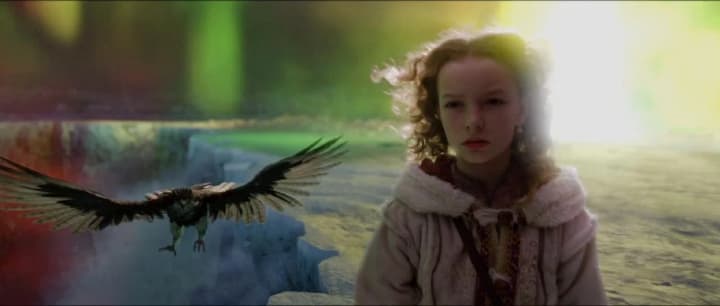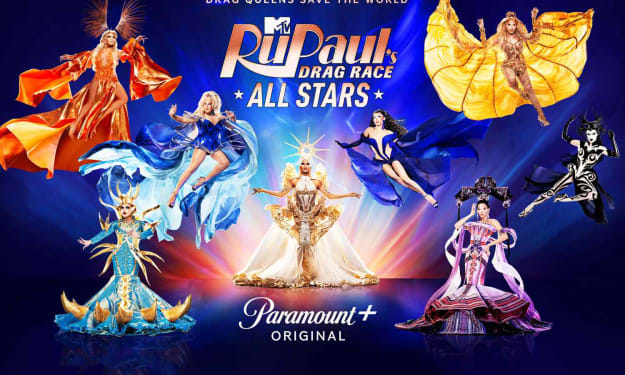
As an avid reader, you learn to compromise when it comes to book adaptations. Obviously changes have to be made when taking a novel and rewriting it as a screenplay and mostly as long as the production stays faithful to the core of the story's DNA, fans are usually happy - there are even some changes where the screenwriter makes a scene or character dynamic flow better than it did on page.
However, there are times when filmmakers deviate so far from the source material, the adaptation slowly dwindles into obscurity or worse - ends before they've even started. This is seen in Chris Weiz's adaptation of Philip Pullman's first instalment of His Dark Materials... it failed both in terms of staying faithful to the source material and was cancelled before the series even picked up. But why? Philip Pullman's fantasy trilogy has been adapted for radio, theatre and television - all three different mediums have managed to tell the full story successfully and creatively, so how could a Hollywood blockbuster in the making plummet so hard?
The film depicts the adventures of Lyra Belacqua, an orphan living in a parallel universe where a dogmatic ruling power called the Magisterium opposes free inquiry. Children in that universe are being kidnapped by an unknown group called the Gobblers who are supported by the Magisterium. Lyra joins a tribe of seafarers on a trip to the far North, the land of the armoured polar bears, in search of the missing children.

There's a video essay by Cautiously Realistic which delves into a highly researched essay on why this highly anticipated adaptation failed. I will be looking into the main reasons I think this film failed to reach its full potential in my review.
First and foremost, the writing of this adaptation was insultingly dumbed down. For context, the Golden Compass was rated PG (Parental Guidance in the UK, whereas the BBC/HBO His Dark Materials is rated 12. Not to say you can't have mature themes in a PG film that the family can all watch, but here it seemed to struggle to find its footing. Pullman has always said he never writes with a singular audience in mind - which is why his fantasy series delved into dark and sinister themes on multiple occasions - and the series has tentatively found its place as being credited as a YA read in recent years, as a consistency of his writing includes the transition of "innocence to experience".
From the first chapter on the first page, you are literally dropped into the world with no explanation or background - the reader is introduced to the protagonist mid-scene and has to play catch-up with the characters to learn what is going on:
Lyra and her daemon moved through the darkening hall, taking care to keep to one side, out of sight of the kitchen. The three great tables that ran the length of the hall were laid already, the silver and the glass catching what little light there was, and the long benches were pulled out ready for the guests. Portraits of former Masters hung high up in the gloom along the walls. Lyra reached the dais and looked back at the open kitchen door, and, seeing no one, stepped up beside the high table. The places here were laid with gold, not silver, and the fourteen seats were not oak benches but mahogany chairs with velvet cushions.
Pullman is basically saying to the reader "Okay, this is Lyra and her daemon Pan. Go on, off you go" - and you have to gradually piece together the mythology, characters, plot and rules of this world yourself. An entire chapter is dedicated to Lyra and the reader learning the many meanings of alethiometer's symbols. The reader is never treated as someone who needs to be spoon-fed information and this shows throughout each book.

The Golden Compass however relies heavily on exposition, as in from the opening scene you have an entire voiceover explaining the rules of this world and essentially the entire outline of what to expect:
NARRATOR: There are many universes and many earths... parallel to each other. Worlds like yours... where people's souls live inside their bodies... and worlds like mine... where they walk beside us... as animal spirits we call dæmons. So many worlds... but connecting them all is Dust. Dust was here before the witches of the air... the Gyptians of the water... and the bears of the ice. In my world, scholars invented an alethiometer... a golden compass... and it showed them all that was hidden. But the ruling power, fearing any truth but their own... destroyed these devices... and forbade the very mention of Dust. One compass remains, however... and only one who can read it.
Within minutes, we are overloaded with information. We don't see a scarred baby wizard left on his estranged aunt's doorstep or meet our heroine comforting her younger sister, terrified of the impending Hunger Games reaping. We aren't introduced to these characters or factions gradually, we immediately know who is who before we meet a gyptian, bear or witch on screen. Relying too much on exposition translates as lazy world-building and insinuates that the viewers can't pick up on these plot points or character arcs themselves. This exposition also carried over into the dialogue itself, making for painfully unnatural character interactions.

Now I will say, Weitz is a brilliant director - visually this film is gorgeous and this carried over into his directing of New Moon a couple years after this film. His eye for detail and capturing beautiful scenery is pretty consistent. Yet the script lacks the maturity the source material had, with clear comparisons visible with Lord of the Rings and the child-like wonder of Narnia - what this adaptation failed to comprehend is His Dark Materials stands independently of these franchises, but they tried to market off both these past film adaptations through marketing and style. I think if you went into this film blind, it is an enjoyable family film - the boycott of the ending made for a very safe conclusion.
Casting wise, this film went for big names for 2007 - Nicole Kidman, Daniel Craig, Sam Elliott, Eva Green and Ian McKellen. Kidman's Mrs Coulter was pretty one-dimensional as in she was glamorous and seductive, but this film rarely delved into Coulter's struggles within a patriarchal society or her dark sides - Kidman's Coulter always seemed a bit too controlled. Daniel Craig was literally James Bond in this role, that was the best I could describe him - there was no individuality of his portrayal of this character and felt very safe. Eva Green and Sam Elliott were two of my favourites, Elliott in particular eerily resembled how I'd imagined him as I'd imagined Lee on page. Ian McKellen I have mixed feelings on, while he gave a good voice performance - the fact Nonso Anozie (Game of Thrones) had originally voiced that role and was recast last minute was a true shame and upon reflection, I would have preferred Anozie as Iorek Byrnison.

The casting of Dakota Blue Richards as Lyra Belacqua and in truth many of the younger talent, it was apparent that this was their debut acting roles. In Richards defence, she was only eleven when she was cast in the leading part - in contrast to Dafne Keen, who was thirteen during shooting of Season One of His Dark Materials and screenwriter Jack Thorne had aged up Lyra to match Keen, so the maturity of both incarnations of Lyra are different straight away. The child actors did feel like child actors, either not having the experience or the acting range to portray their characters as this was clearly their first gig. Richards did good for her age and I'm pleased to say she has continued acting and grown into her craft, but her lack of experience was apparent in certain scenes throughout this film.
Again, if you watched this film without thinking of it as an adaptation or even without knowledge of Pullman's trilogy, it is an enjoyable downtime film for the family and children in particular would enjoy it. As an adaptation, its decisions to play this production safe and cut out not only its controversial themes but the ending itself - it was no surprise this film landed poorly with fans and critics alike. Plus, this watered down version sadly saw the potential film trilogy cancelled.
The worst part is, Weitz had filmed a more faithful ending and the producers decided to scrap that entire sequence for a feel good ending instead, rather than a devastating and darker one as 0riginally intended - I think my past reviews on productions such as Flowers in the Attic and Noughts & Crosses have gone into detail about my issues with changing endings like this. As well as it being a disservice to the source material you are trying to adapt, it also says that the creatives aren't comfortable with writing tragedy or they wrongly assume their audiences want a happy ending over a faithful ending.

Therefore, as much as I agree that this would be a challenging series to adapt - the commitment needs to be there if you're going to do it right. Weitz had a great vision, but he was thwarted at every turn by powers higher above, forced to recast actors he wanted to keep and even cutting the ending for a commercial appeal that was not what the audiences wanted in the slightest. One piece of advice I was given as a screenwriter I think applies to this film: "You can have the biggest budget and the best cast, but if your script isn't written right - the film is doomed to fail".
My rating for this film is a ★★ - especially when you look at the fact this film had so much potential and the story has been beautifully adapted for other mediums that so far managed to tell Lyra and Will's story in its entirety.






Comments
There are no comments for this story
Be the first to respond and start the conversation.